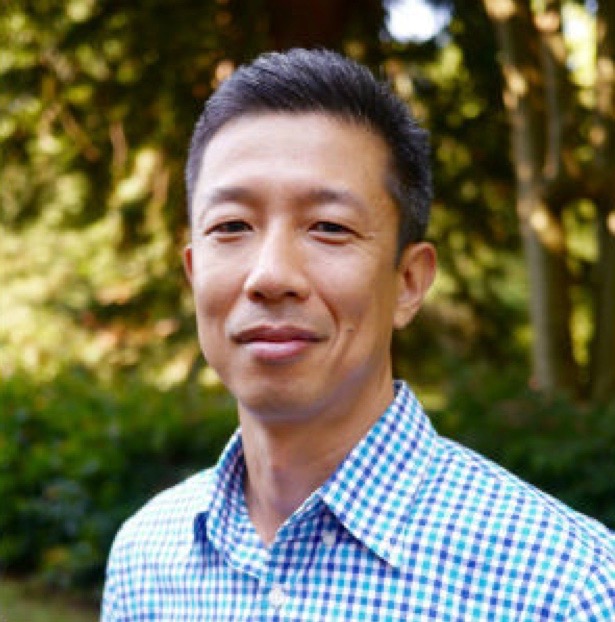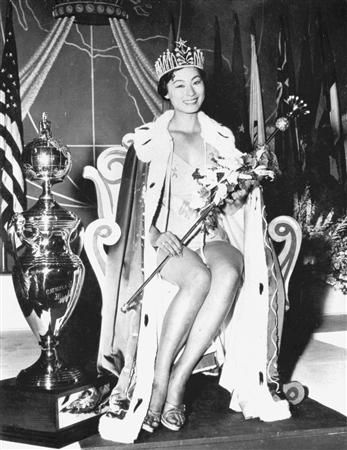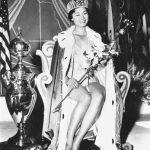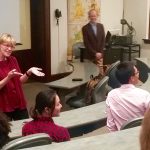 At the J.LIVE competition held at George Washington University in November 2016, Ms. Kexin Ma (’17) presented a dynamic and engaging talk about「黒い茶碗の中の世界」,”The world inside a black tea cup.” In this presentation, Ms. Ma cleverly introduced the audience to Jian ceramic wares, an ancient Chinese black-glazed ceramic popularized during the Song dynasty (960-1279). She explained how Jian wares reflect the artistic taste of Song literati developed from their appreciation of nature and highly popular cultural events related to the contemporary fashion of tea drinking.
At the J.LIVE competition held at George Washington University in November 2016, Ms. Kexin Ma (’17) presented a dynamic and engaging talk about「黒い茶碗の中の世界」,”The world inside a black tea cup.” In this presentation, Ms. Ma cleverly introduced the audience to Jian ceramic wares, an ancient Chinese black-glazed ceramic popularized during the Song dynasty (960-1279). She explained how Jian wares reflect the artistic taste of Song literati developed from their appreciation of nature and highly popular cultural events related to the contemporary fashion of tea drinking.
An especially intriguing part of her discussion involved ancient Chinese and Japanese ceramics as appreciated works of art that are so creative and unique that they have become highly valued museum pieces. She pointed out that, although some museum audiences seemingly prefer such fine arts as oil paintings and luxurious jewelry rather than ancient ceramics, Jian wares nonetheless deserve closer examination.
As an Art History major at the college, Ms. Ma has developed an interest in Chinese ceramics, so she recognized such ceramics as mirrors that reflect cultures and societies of different ages as well as the high skills of the potters. During the presentation, she called people’s attention to the historical and cultural significance of ancient ceramics and she helped the audience understand how ceramics can be a link between the past and the present. The unique way Ms. May blended her two fields of study from the different departments made the presentation all the more informative and relevant.
 The judges and the audience found the presentation both informative and insightful. Some in the audience even said the presentation sounded like an academic talk, as it not only helped them realize the unique aesthetic quality of ancient East Asian ceramics, but it also demonstrated how works of art provide insight into the development of human society.
The judges and the audience found the presentation both informative and insightful. Some in the audience even said the presentation sounded like an academic talk, as it not only helped them realize the unique aesthetic quality of ancient East Asian ceramics, but it also demonstrated how works of art provide insight into the development of human society.
Ms. Ma was placed in Category II level in the contest; that designation indicates that she possesses intermediate-high to advanced-low level speaking proficiency. She adopted a variety of expressions and vocabulary, including professional terminology related to her topic. Thus, her vocabulary, inflection, delivery and language proficiency were highly scored.
During the presentation, she effectively connected with the audience, asking questions and actively interacting with the audience. Among all the competitive contestants, Ms. Ma especially stood out in the Q&A session with the judges and the audience, answering their questions insightfully. In addition, she was able to clarify her answers effectively by following up with elaborate explanations.
Ms. Ma currently is in Japanese 302, Upper Intermediate Japanese. She routinely exhibits her confidence, oratory skills, creativity and innate curiosity about people and culture.
For a full description of the JLIVE at GWU, click here.


















